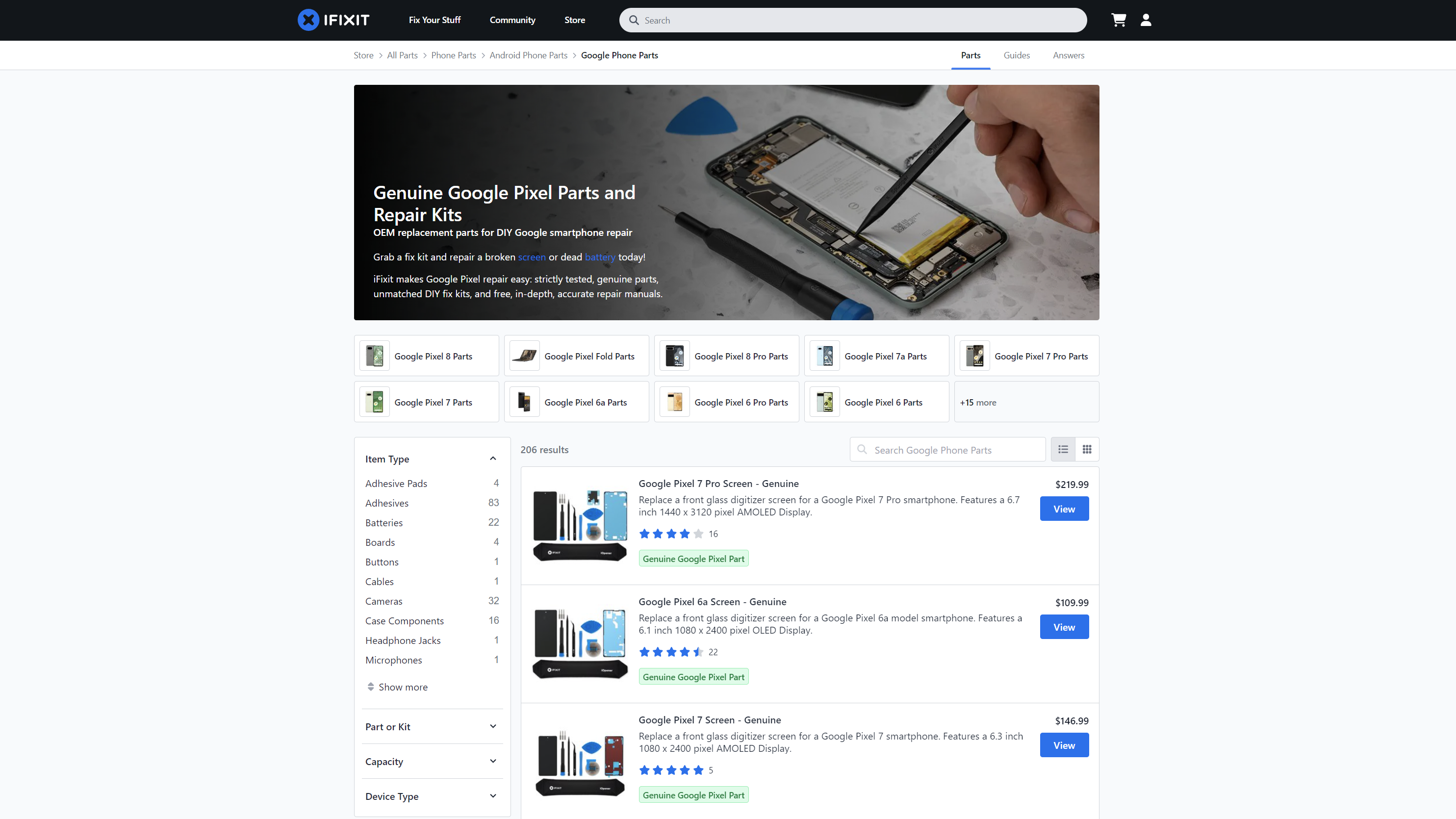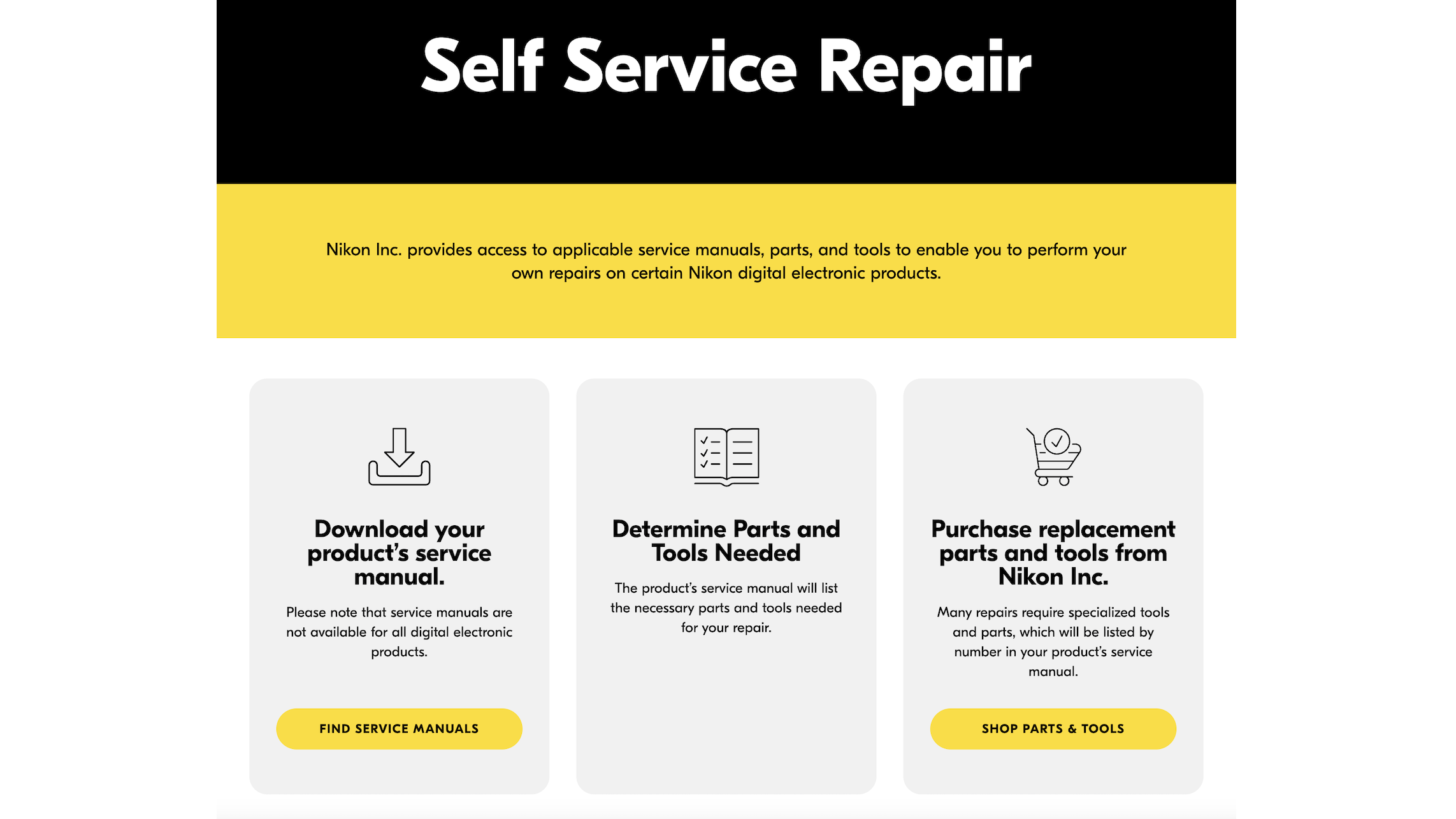
If you've ever had the misfortune of damaging your camera or lens, knowing what to do next can be tricky. In the case of Nikon, there's the option of sending it to a Nikon Repair Center, but that's not always an ideal solution: you'll be without your camera/lens for an unknown length of time, and the cost of a repair won't be apparent until a technician has assessed the damage. Now it seems there might be an alternative, as Nikon has quietly launched a Nikon Parts webpage on its US site.
Currently the page seems to be more of a placeholder than a fully-functional parts web shop, but the intent is clear: self-service, DIY repair for your Nikon product. It's a move potentially inspired by the phone industry, with the likes of Apple now offering self-service repair via Service Parts Or Tools, Ltd. (SPOT), and Google partnering with iFixit to provide genuine parts to fix Pixel phones.

I've personally attempted to fix a smashed screen on my old Nikon D5100, and I can tell you that the disassembly process is certainly a whole lot easier than trying get inside a modern camera phone. Nikon DSLRs, at least, are assembled using mostly accessible screws, rather than the impenetrable glue that welds a phone together. Of course, once inside you'll need to be extremely careful with the delicate electronics and electrical connectors, and take suitable electrostatic precautions. As such, Nikon's product warranty doesn't cover damage incurred during a self-service repair, and a Nikon Service Center probably won't help you either - there's an explicit warning to state this when you load the new Nikon Parts webpage.

But voiding your warranty has always been par for the course when attempting a DIY repair - we get that. At least now it'll hopefully be easier to obtain the parts you'll need. Whether or not the parts selection will be extensive enough for the service to be truly useful remains to be seen, and of course, the parts cost will also need to be reasonable to make a self-service repair financially viable. We've got our reservations about that though, with Nikon itself controlling the supply chain.
So is this another small win for the Right to Repair movement, or will it end up as a half-baked token gesture that achieves some positive eco/sustainability marketing, but little real-world utility? Watch this space...







